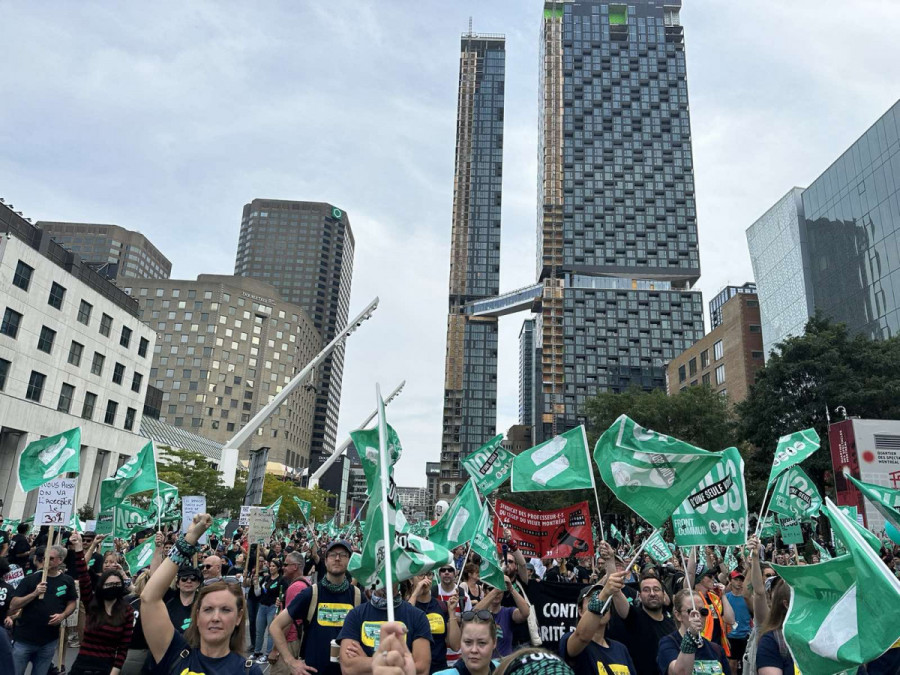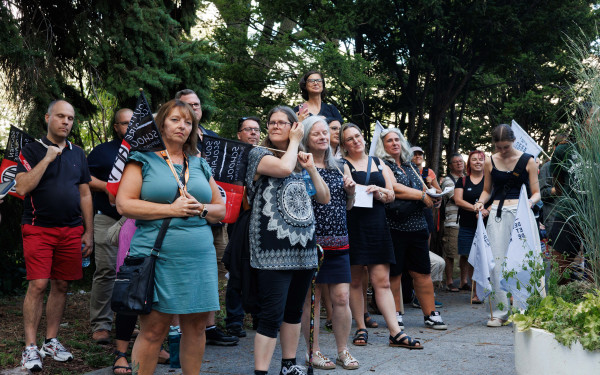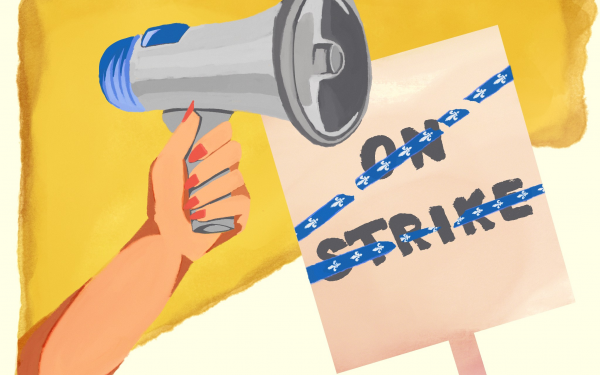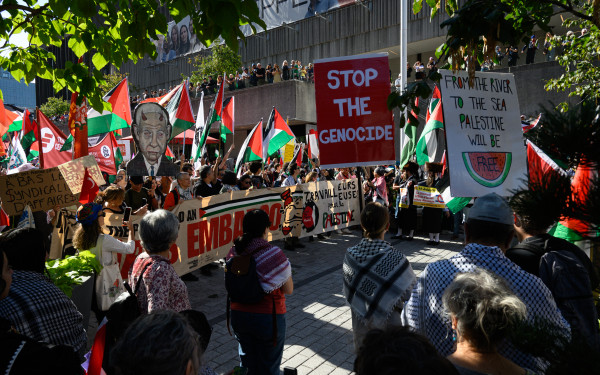Thousands of public service workers demand better working conditions
Workers’ unions are united in fighting and demand change in the public sector.
On Sept. 23, four of Quebec’s largest workers’ unions—the Confédération des syndicats nationaux (CSN), the Fédération des travailleurs et travailleuses du Québec (FTQ) and the Centrale des syndicats du Québec (CSQ) and Alliance du personnel professionnel et technique de la santé et des services sociaux (ATPS)—combined efforts to mobilize and demand fair pay alongside thousands of public service workers who all gathered at Jeanne Mance Park.
Signs and turquoise flags adorned the air as tens of thousands of protesters marched and chanted, sending a message to the provincial government that they deserve fair compensation for their work. They voiced their anger with the government’s neglect of the union negotiations.
Workers from all public sectors marched together from Jeanne Mance Park to Place des Festival. Upon arrival, the four presidents of the unions took to a built stage, made speeches and thanked workers for their hard work and support.
Louis, who wished to remain anonymous for job security concerns, is a health care worker on a suicide prevention team. He explained his frustrations with the public health system and the poor working conditions the government imposes on its workers.
“We are understaffed, waiting lists are exploding. The police got a 21 per cent increase, while we got nine per cent over the next five years,” said Louis.
Hospital workers aren’t the only ones concerned with their current working conditions.
Bianca Aloe, a teacher and union delegate at Harold-Napper School said the situation for public schools isn't looking too bright either.
“The government is low-balling offers that aren’t even respectable,” she said. “We are going backward [from] what we earned in the past.” She added that the government is trying to attack teacher pensions, and refuses to listen to teachers demands, which directly affects students.
Aloe said that the resources the government is giving are not nearly enough to cover costs. “The government is giving us $30,000 for books, and with inflation, that doesn’t equate to a lot of books,” she said. She added that those are only a small part of the costs that need to be covered. Salaries need to match inflation along with several other costs to accommodate student needs.
Tensions are also rising in the law sector. Members of ATPS union said they have been ignored by the government and haven’t conducted any negotiations with the union.
Ester Sterling is a lawyer under the Health Ministry working in the Youth Protection sector. According to her, lawyers under the Health Ministry receive far less pay than lawyers under the Ministry of Justice for the same work. “We simply want equal pay,” she said.
Florence Tison, delegate for the (CSQ) said the demonstration is a direct way to call out the government for its unfair treatment towards workers. “People gathering today is proof that they think something is wrong with the system,” she said. “We need a working health system, and [a working] education system, but young people won’t go towards those jobs because they don’t pay well.”
Protesters continued to march with signs and chants to raise worker’s spirits.
Towards the end of the protest, the union presidents each made a speech encouraging workers to keep fighting. According to CSN’s vice-president Francois Enault, the health sector in Îles-de-La-Madeleine has already voted on a decision to strike with 98 per cent in favour. The health sector isn’t the only one voting to strike. According to CTV [Montreal] , all unions in the independent teacher federation (FAE) have collectively voted to strike, with 90 per cent in favour. Similar voting has been seen across different unions and sections.









